Crazy Markets: Time to Start Thinking about Selling Your Home and Renting?
Category: Financial and taxes in retirement
June 18, 2022 — The last two and half years have provided an amazing ride for homeowners In almost every part of the U.S. Most sellers probably had to fight off buyers willing to pay far more than the asking price, and ended up with a buyer the same day they put it on the market. For renters, it wasn’t such a great period, with rents high and hard to find. In 2019 the NAR median sales price of a home in the U.S. was $274,600. Two years later, that price has risen to $368,200, a 34% increase, certainly one of the most meteoric rises in history. The Census Bureau reported a similar increase in the average price of a home, now at $570,300. Those double digit increases put a smile on many people’s faces, but is it time to think change is a coming?
In June 2021 a 30 year fixed rate mortgage was 2.93%. With the Fed’s most recent 0.75% rate hike, the same mortgage loan rate is 5.23%, almost doubling in one year. On a $200,000 mortgage, that amounts to a $4600 annual interest difference, big enough to put a damper on some people’s ability to buy a home.
One estimate is that there is $8 trillion worth of home equity locked up in older people’s homes. With home prices are at record levels, some people think this is the perfect time to sell, before things start cooling off. They theorize that if you are lucky enough to own your home, why not sell it while the going is good, invest your equity elsewhere, and find a nice rental.
Let’s look at the advantages and disadvantages of such a move.
On the plus side
You’re selling at the top (maybe). Cash in now and capture historic gains.
Stocks are falling and might offer some good buys. Even if you don’t make a bet on equities, at least you have taken your home equity off the table. If your retirement assets aren’t what you had hoped, you can now use that equity to fund a more comfortable lifestyle.
You wanted to downsize anyway. Selling now offers the perfect excuse to downsize, get rid of your clutter, and live in home that better suits your needs today.
Move where you want to be. You can move wherever you want, in whatever type of community you would like. If you are selling in a hot market and moving to a lower cost state, that puts you in an even better position.
Simplify your estate planning. Some people hang on to their home longer than they really want to because they plan on giving it to their children. But the chances are the kids won’t want to live there, have to clear it out, and sell from a distance. If you asked them, chances are they would rather have the money (and you could give some of it to them now when they might need it more).
Renting is easy. If the roof leaks and the AC stops working – call the landlord! If you don’t like it, it’s easy to pull up stakes and try somewhere else.
Renting is the only solution if you don’t own now and have limited resources. Unfortunately, many retirees are just priced out of the market, and have no option but to rent.
Not so fast
Finding a nice rental might be difficult. This is currently the biggest drawback -finding a suitable place to rent. The Census Bureau just reported that vacancy rates were 5.8% in the first quarter of 2022, down a full percentage point from that period in 2021. The lowest vacancy rates in the country were in the West, at 4.5%. If you think you are ready for independent living, assisted living, or continuing care – this won’t be an impediment, as they provide many rental options. Many active communities have long term rental options as well. In cities, renting is a very common option. Elsewhere, the rental market can be tight in many places.
Some people just don’t like renting. One of our friends sold their home when real estate prices recovered from the 2008 recession. But his wife hated living in a rental – the uncertainty of it combined with just not having her own place. So eventually they bought again in a rising market, after looking a long time.
Rentals can end sooner than you want. Landlords can decide they want to sell the property or live in it themselves, putting you on the street.
You don’t have a good place to invest the money. If you don’t like investing or don’t think there is any better investment than real estate, your newly converted home equity could feel like a waste.
Bottom line
Deciding to sell and rent is a big decision, and not the only one. For example, you could purchase a new home or convert the one you have into a reverse (HECM) mortgage. That would give you the cash to fund your lifestyle without having to sell your home.
The point of the musings in this article is that we seem to seeing a shift in the market. Whether that plays out or not remains to be seen, but it certainly looks possible. We bring it up because it provides an interesting point in time to reconsider one’s options.
Comments? Have you considered selling your home, and either buying another one or becoming a renter? What are your thoughts and considerations? Please share them in the Comments section below.

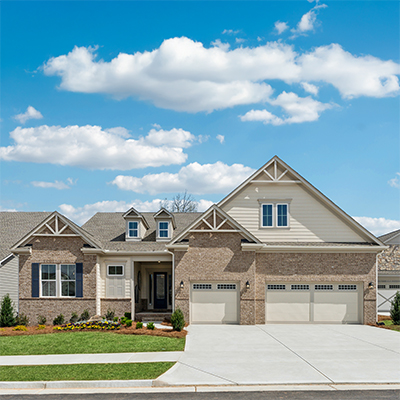
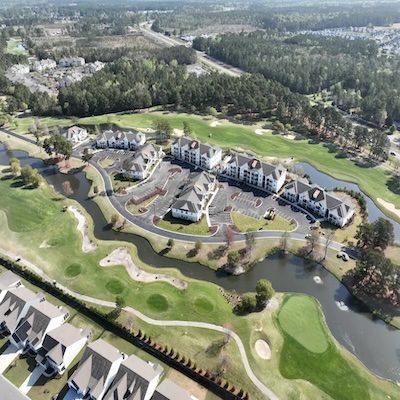
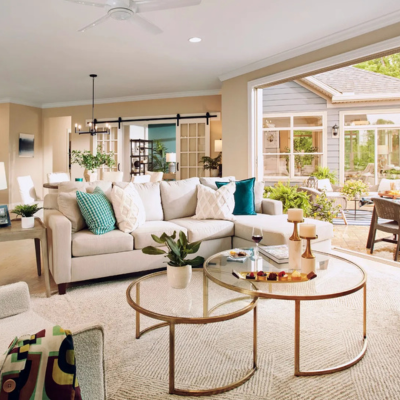
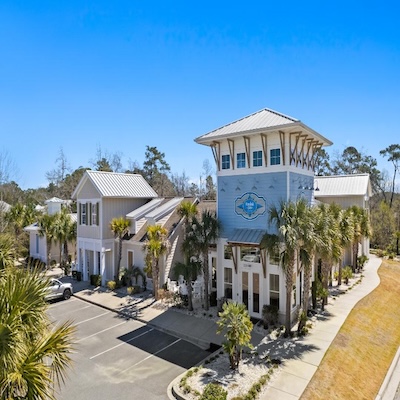
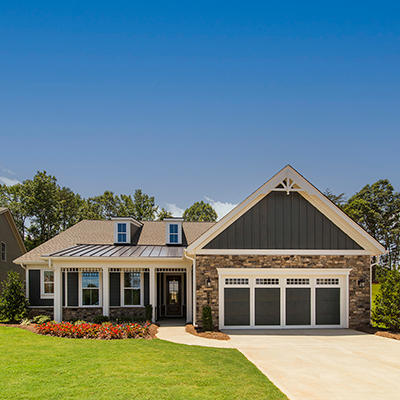

Comments on "Crazy Markets: Time to Start Thinking about Selling Your Home and Renting?"
Louise says:
I despise renting. My parents and I lived in a two-family house. The owners originally lived downstairs but decided they wanted to live upstairs which was kind of strange. So, we moved in. The owners controlled the heat, and we would freeze sometimes and have to knock on their door to ask if they would turn the heat up. Then after we lived there maybe 3 years, they decided they wanted to live back downstairs so we moved upstairs. That lasted about two years then they sold the house. I think they ended up moving back upstairs and the new owner moved downstairs. We had to move out. We moved to another place and the owner had these plastic covers over the thermostats so you couldn't raise the temp in our unit. The owner was a nosey person and was always lurking about. Eventually, he decided to turn the apartments into condo's, and we had to buy or get out. We got out. My Mom found a house that needed some TLC and they bought it. They fixed it up and it was ideal for them till they both passed away.
I would rather be in my own home and not deal with the whims of the landlord. My father never wanted the responsibility of a house.
I would consider a vacation condo to rent for a few months a year but never year round.
In NY city it is nothing to pay $4,000 for a one bedroom apartment.
Fionna says:
Another problem with renting is shared walls and noisy neighbors. I have lived in a number of apts. and only one was quiet since the building was old and had thicker walls. Renting is definitely not for me!
Clyde says:
Fiona, condo owners also usually have shared walls and sometimes the neighbors can get noisy. We own a condo, but have been fairly lucky with neighbors who are reasonably quiet. But it’s definitely a consideration when considering a condo. Depending on the setup, some condos may not have very many shared walls.
JoannC says:
I will never rent again - or at least, I hope not, and even then, only for a short period of time while I size up a new location. I have dogs and my sister lives with me so I need a place with a yard and a few bedrooms. In California, renting a place that meets my needs means throwing a *lot* of money down a rat hole. One of the places I rented after I retired and sold my house was a condo - an expensive one with a greedy landlord - and I could hear everything happening on the other side of my bedroom wall. I finally moved back into a previous home that I had turned into a rental for 20 years and now plan to move one more time, probably back to the area where I had lived before I retired. But I'd rather spend a fortune flying back and forth to look at houses than move there and rent.
HE says:
Unfortunately, right now, the real estate market appears to be cooling. Even if you could sell your house for a tidy profit, it will be difficult to find something to rent. Plus, rents are sometimes double what a mortgage payment would be so, I'm not sure you would come out ahead.
We bought our house while husband was still working and a mortgage was easy t obtains. Not sure, as retirees, it will be that easy again. Also, if we could sell our house, the only places we could afford are NOT places we would really want to live. I guess we'll stay put for now. We're saving up for that Retirement Community - one where 100% goes back to our estate once we're gone.
Louise says:
Here is a list of pro's and con's. I am sure there are more that could be added:
Pro’s
No landscaping work
No need to buy any tools or equipment to fix problems
No replacing appliances
No fixing plumbing, electric problems
No dealing with septic pumping-could have city sewer
No dealing with well problems-could have city water
No painting the interior
Can go on vacation without worry about taking care of anything
Con’s
Limited parking places and unassigned parking or no guest parking
From attached walls/ceilings: Hearing voices, arguments, dogs barking, children screaming/crying, heavy footsteps, doors slamming, children’s toys making noise, bathroom noises
Landlord controlling heat
Landlord increasing rent each year
Landlord snooping around and being nosey asking too many questions they don’t need to know
Landlord slow to fix problems
Landlord can deny a new yearly lease and tell you to leave
Landlord can sell building and you may have to leave
No washers and dryers in unit or on premises
Landlord not allowing dogs and cats or limits number you can have
Sharing outdoor area with other renters, no privacy
Not being allowed to park a company truck or car on premises
No or limited storage space
If one apartment gets bedbugs, they can spread through the building (happened to someone I know)
If one apartment has a fire, it could affect other apartments
Areti11 says:
We sold our home for 4 times what was paid for in San Diego a few years ago. We decided to move to a 55+ Resort Apt Complex. It provides many activities and meals in a garden setting. Shopping is right next door and 24 HR maintenance. We only pay $1495 monthly. We did private ownership renting and never again.
LS says:
In DFW, two companies have entered the market with build to rent single family homes. These are small stand alone houses with a like-size fenced back yard. The communities have amenity packages and the homes are simple but feature rich. One community even has doggie doors as standard. The communities are not as inexpensive as an apartment but you don't have any common walls and you have your own back yard. I would say they are aimed more at young professionals who want their privacy but don't want to deal with home maintenance issues and the costs of home ownership. Rental units are very expensive in our area now because of the influx of people moving here for employment reasons but many apartment units are under construction due to the demand. I think the rental home communities could be a huge trend if they can get the price down, especially for retirees who want their privacy but not the headaches of owning another home.
HE says:
This might be worth watching. Available on YouTube from 19June 2022
"LAST WEEK TONIGHT WITH JOHN OLIVER" caution - some bad language, but he gets worked up over his topics.
His main discussion this episode is HOUSING. Might be worth watching, no more than 30 minutes.
John Brady says:
Here is an example of the many kinds of rentals that are available for people who want to pursue that option. Smaller homes in a gated, all-ages community with some basic amenities like a community pool. Personally, the idea of having a pool I don't have to take care of seems like a great idea! There are many options available beyond apartments in the rental world. This community was just added to our database: Christopher Todd at Dechman
John Brady says:
The Census Bureau just reported that the average sales price of a home in the U.S. was $570,300 in April 2022, an increase from $434,800 (31.2%) in April 2021. That is a pretty dramatic increase!
F. John says:
We have purchased a small, manufactured home built in 2007 on land that we own in a 55+ community. There is a Nine Hole Golf Course running through the development, a very nice clubhouse and pool, many additional amenities; best of all, the community of seniors is varied and active as you wish to be. There is a built-in support system and a hospital across the street. The lots that have yet to be developed or were recently developed are being leased, but the home on the lot is owned. That is not an inexpensive option, as the "landlord" selling these homes requires the lessees to pay the property taxes on land that they do not own, plus the HOA fees. The leases are not terribly fair, so if one wishes to buy in the development, it is best to wait for one that is sold in Fee Simple, so you own the land. The development is called Desert Greens, in Pahrump, Nevada, just 45 minutes from the major airport in Las Vegas, It does not share the same crowding concerns and water issues as Vegas, but it is much smaller with only 45,000 residents in the town. This is a rare community in which you can own your own property with the land; it is very different from most 55+ developments where everybody leases the land. By the way, did I mention that you can own a 1,200 Sq. Ft. home with nice amenities for only $200,000? We paid just $169,900 just 10 months ago! Properties in the West are climbing rapidly!
C Jordon says:
I currently own a townhouse condo but want to buy a small, one-level single family detached home. I will never buy / rent any attached housing. My neighbor sold her condo below me last year & the witch from Hades bought the condo sharing it with her Mother & son. The food the mother prepares has permeated my place with funk. Lord, the food stinks!! I don't desire to live in a home that smells like a stale restaurant. I will put my home on the market soon. Can't wait and will never live in any building with attached walls! Newer apartments are much smaller these days, & I like new, but cost too much - everyone is being greedy & overcharging when it really isn't necessary. Groups of younger adults are renting units and are noisy & probably not clean. I will continue to pursue owning again, it's a wiser move for me!
Clyde says:
I certainly sympathize with C Jordon about the risk of unpleasant or obnoxious neighbors and noise when you share a wall, ceiling or floor with them, as is mostly the case with condos and apartments. I remind folks that age-restricted communities (usually where one resident must be 55+) can remove some of the risk, especially as it may relate to small children, teenagers and young adults. Most of these younger ones are fine, but heaven help you when that’s not the case. An idea might be to rent in one of these types of senior communities, and if you like the particular unit, you might be able to negotiate a purchase from the landlord. Of course, in any situation, detached house or condo, you usually have little control about who moves in next to you. If the issue is noise, one can consider adding soundproofing, although that could be expensive. It often works quite well and you may consider it worth the cost. As to smells, maybe a reader has an idea how to limit that.
John Brady says:
Looks like we weren't the only outfit to think along these lines. The NYTimes just published an article on this same topic (always fun to scoop them!): "Some Ex-homeowners Wait for the Market to Cool". The people they interviewed have decided to sell now, and it talks about how they are doing in the rental market. Many of the people in the article are pre-retirement, so they have more incentive to get back into the market than retired people. It also has some interesting ideas about the kinds of places you can rent - most folks don't think about all of these possibilities.
Green Tbird says:
I worry about selling in this hot market and waiting until it cools down to buy again (which is what I would like to do). My concern is the tax consequence of not re-investing the profit from selling and looking at a monumental tax bill.
Cam says:
I thought the capital gains exclusion on the profit of your home sale (that is over $500k for a couple, $250k for singles) applies even if you buy another house. Does anyone know where I can find the current tax law on this?
JoannC says:
Cam - you are correct. See IRC ssection 121. https://irc.bloombergtax.com/public/uscode/doc/irc/section_121
Bob Stacy says:
I would like to comment on Louise's earlier Pros & Cons of renting. I concur with her pro's and add:
--yearly apartment insurance is much cheaper than home owners insurance
--no real estate taxes to pay each year and with SALT capped at $10,000 the deductions filing taxes are not as great as before the rule was changed
--mostly one level living so less chance of falling down/up steps
As to the con's, I must be lucky with my current apartment rental because:
--I have assigned numbered parking in my garage and there is plenty of guest parking
--I hardly hear any noise as my building was built as a luxury condo complex in 2008 but owner decided to rent units because the housing market collapsed that year
--I control my heat & AC
--My rent only increased 3% this past year
--Maintenance fixes my issues with 24 hours, if not before
--I have a washer/dryer in my unit
--I have a privacy patio
--I am able to rent extra storage space if needed
--My packages are delivered to a secure room where you are given a code to retrieve your packages
--Yes, fire can move to my apartment from another but the same was true for my formerly owned condo & townhouse; same for bedbugs but we have excellent pest control service for the building
As a retiree, I plan to move within the next two years from the DC area to somewhere South (warmer, less expensive). I lived in my townhouse for 28 years and this past January decided to sell while the market was still hot and before interest rates rose. It sold and closed within 3 weeks! With my profit I now have invested some of the money (stocks, bonds, etc) with advice from my financial advisor. The extra cash helps with my rent. Unlike others that don't like renting, I always have. I have a one year lease and during this time I will begin to look at other places to live. And per advice of this excellent newsletter, I would rent first before I even consider buying. I'm just not sure buying at my late stage of life is worth the investment.
Green Tbird says:
JoannC - Yes, the IRS section you linked to does limit the taxation of the proceeds of the sale of my home, but since I have lived here for over 30 years the increase in value may very well rise above that $500k exclusion.
JoannC says:
Green Tbird - yes, with housing prices going the way they are, that will be a problem for many of us who have owned our homes for a long time. But even if you reinvest all the proceeds of the sale, the $500k exemption is the max that's protected. Sadly. And because I had rented this house for several years before moving back in, I also have depreciation recapture, another hit. Not a happy situation.
Sharon L Alexander says:
Bob, thank you for all your comments. Great info.
Sharon A.
Jennifer says:
Bob ,
I live in DC and that is exactly what I intend to do--hopefully, you will stay involved and let us know how it all works out for you. I do not want to invest in another mortgage as I am in my 60s now. Renting in a condo building that is well maintained is what I am going to look for. I am not necessarily looking south, I am open to northeast and back to my state of Indiana possibly/
Jan Cullinane says:
If you don't want to rent an apartment or purchase a home or condo, and don't want the hassles of owning a home, but do want the space, garage, a free-standing residence and the perks of living in a single-family neighborhood, perhaps with a professional management company to deal with maintenance, repairs, and landscaping, you could consider Christopher Todd communities or NextMetro homes.
One specific example is Heritage Shores with a built-to-rent section of single-family homes. Only an hour from the ocean in Bridgeville, Delaware. Visited this for research for my just-published book.
Like "Rent the Runway" - but it's for a house instead of clothes!
Jan Cullinane, The New Retirement: The Ultimate Guide to the Rest of Your Life (Wiley, 2022)
John Brady says:
More clarifications about taxes on any profit when you sell your home. If you lived in the home for 2 of the last 5 years you can exempt $250,000 ($500,000 for a couple) from taxation. But, any excess is treated as a capital gain, which is a lot better than ordinary income.
Some people have another problem though. That affects snowbirds who have owned a home for a long time in the Northeast or other high tax state, but then became legal residents of another state. They will not usually have lived in the old state for 2 of the past 5 years, so the federal exemption doesn't apply on that home. And they could also face a big tax bill in that state, even if not residents. It is complex enough that it would merit getting a professional opinion on the best strategy to take.